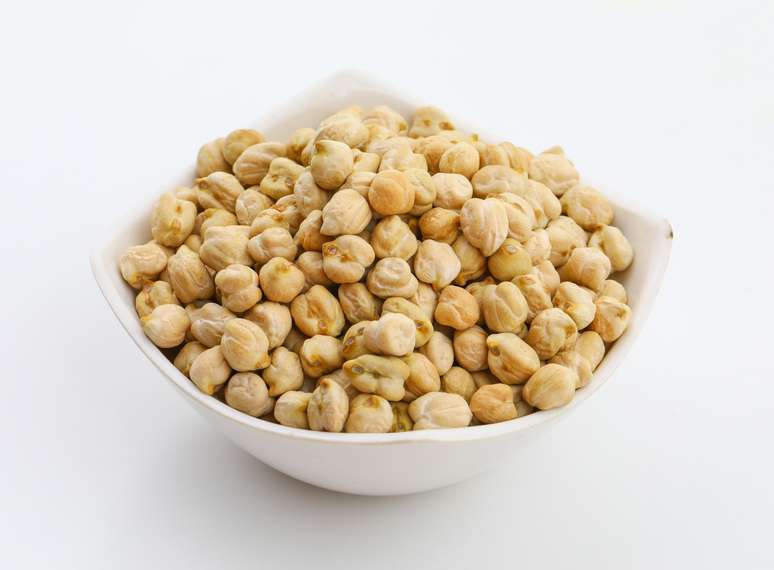It helps in weight control, intestinal function and cardiovascular health
Chickpeas can be considered a powerhouse of nutrition, as well as being quite versatile. It is classified as a legume and is famous for being rich in proteins, which help provide satiety and facilitate muscle formation.
Chickpeas are one of the first cultivated vegetables in history and nutritionists consider them a superfood.
Nutritional information
According to the United States Department of Agriculture, one cup of chickpeas contains:
- 269 calories
- 14.5 grams (g) of protein
- 4.25g fat
- 44.9 g of carbohydrates
- 12.5 g of dietary fiber
- 80.4 milligrams (mg) of calcium
- 4.74 mg of iron
- 78.7 mg of magnesium
- 276 mg of potassium
- 11.5 mg sodium
Essential amino acids
Chickpeas are known as a complete protein because they contain all nine essential amino acids. It’s also a great source of non-animal protein and is great for vegetarians and vegans.
In addition, the food is also rich in vitamins and minerals, such as choline, which helps the functioning of the brain and nervous system, as well as folic acid, magnesium, potassium and iron. It is also rich in vitamins A, E and C.
Benefits of chickpeas
It offers numerous health benefits, including:
1-Promotes weight control
It is rich in fiber, and a one-cup serving of chickpeas represents nearly half of the recommended daily fiber intake for adults. This promotes satiety and can help you lose weight.
2-Prevents constipation
Since chickpeas are high in fiber, they also help prevent constipation, which has the added benefit of keeping your gastrointestinal health in tip-top shape. However, it is necessary to pay attention to the consumption of liquids to complete the function of the fibers.
3-Promotes cardiovascular health
Chickpeas are naturally very low in sodium and contain no cholesterol. It is also a good source of polyunsaturated fats, which especially help control (and reduce) cholesterol levels, which in turn reduces the risk of developing heart disease.
4-Helps control blood sugar
Chickpeas have a low glycemic index, which means they are a food that does not cause spikes in blood sugar. This is a great food to incorporate if someone has trouble regulating their blood sugar and for diabetics.
5-Excellent substitute for those who are sensitive to gluten
People living with celiac disease develop a sensitivity to gluten, which can make food choices difficult. Chickpeas, on the other hand, are a great option: they are naturally gluten-free.
Consumption recommendations
Unlike other foods, chickpeas offer health benefits regardless of how you consume them. You can eat chickpeas as naturally as possible, straight from the can or bag if you just want to boil them. You can add it to a cold salad or turn it into hummus. How you consume it doesn’t really change its nutritional profile.
The same flexibility applies to pasta or chickpea flour. Both options are healthier than regular pasta made with white flour and provide health benefits every way you prepare them. For example, someone who likes pasta might switch to this version to control their blood sugar.
Hummus, a chickpea spread with oil and tahini, is an excellent accompaniment to bread and vegetables, transforming the snack into a good source of protein. But pay attention to the labels on the pasta you buy at the market. The more natural it is, the better.
Source: Terra
Ben Stock is a lifestyle journalist and author at Gossipify. He writes about topics such as health, wellness, travel, food and home decor. He provides practical advice and inspiration to improve well-being, keeps readers up to date with latest lifestyle news and trends, known for his engaging writing style, in-depth analysis and unique perspectives.









